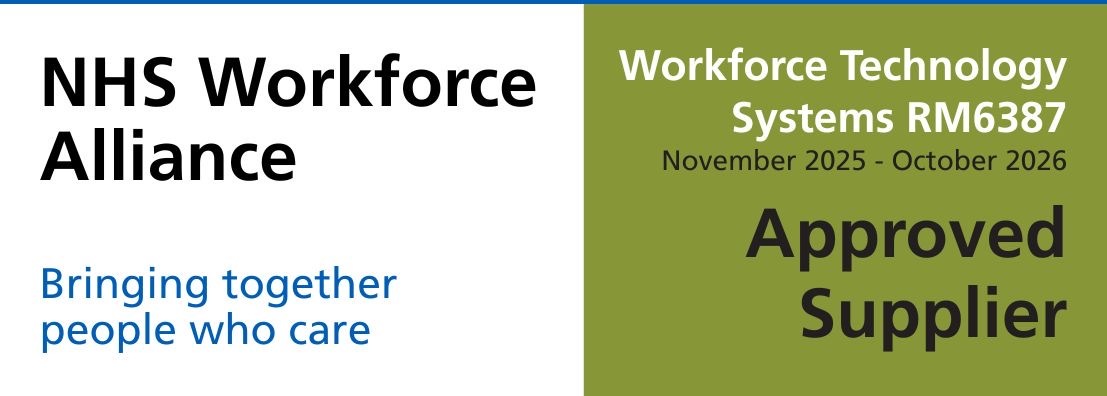
Blog by Flexzo
How Staffing Shortages Are Impacting NHS Patient Care
The NHS staffing crisis has moved beyond a simple administrative or budgetary issue. What we face today is a fundamental challenge that directly affects the quality of care patients receive throughout the UK.
This growing workforce shortage touches every aspect of healthcare delivery, from emergency services to routine appointments. The consequences manifest in extended waiting times, reduced personal interactions, and potentially compromised clinical outcomes. Understanding these impacts is essential to developing meaningful solutions.
The Widening Gap Between Need and Capacity
Healthcare demand continues to grow at an unprecedented rate while staffing levels struggle to keep pace. This widening mismatch creates pressure throughout the entire system.
We see emergency departments becoming dangerously overcrowded. Routine appointments get pushed further into the future. Healthcare professionals find themselves stretched across more patients than clinical best practice recommends.
This situation translates directly to patient experiences in ways that matter. When nurses must care for more patients than safety standards recommend, they simply cannot provide the same level of attention to each person under their care.
Doctors facing overwhelming caseloads have less time for individual consultations. These constraints can lead to missed symptoms or insufficient time to explain treatment plans properly. The human element of healthcare becomes compromised when time constraints dominate clinical interactions.
Impact Across Healthcare Settings
The staffing shortage affects different healthcare settings in distinct ways, but the common thread is reduced capacity to meet growing needs:
- Primary care struggles with appointment availability, forcing patients to wait weeks for non-urgent issues
- Hospital departments operate with skeleton crews that must somehow maintain care standards despite impossible workloads
- Community services that could prevent hospital admissions lack the staff to reach all who need support
Longer Waits and Treatment Delays
Extended waiting times represent one of the most visible consequences of the staffing crisis. Patients now wait longer at every stage of their healthcare journey. Emergency department waits have reached record levels, specialist consultation bookings stretch months into the future, and surgical procedures face repeated delays. These waiting periods aren’t merely inconvenient – they directly affect clinical outcomes and patient wellbeing.
Deteriorating Conditions
When treatments are delayed, conditions often deteriorate. What might have been a straightforward intervention can develop into a more complex medical challenge requiring intensive resources. This creates a damaging cycle where more intensive interventions become necessary because earlier, simpler treatments weren’t available when needed.
For people with chronic conditions, consistent monitoring and timely adjustments to care plans make the difference between stability and crisis. Staffing shortages disrupt this essential continuity, leading to suboptimal management of long-term health issues and preventable complications.
Psychological Impact
The psychological impact of extended waiting times adds another dimension to this challenge. Patients living with uncertainty experience anxiety, depression, and deteriorating quality of life. These factors contribute to worsening health outcomes beyond the direct effects of delayed medical intervention.
Care Quality Under Pressure
Healthcare professionals enter their fields with a profound commitment to excellent care. When staffing shortages prevent them from meeting their professional standards, it creates both practical and ethical challenges that affect patient experiences.
Rush and Compromise
Rushed consultations mean less opportunity for patients to fully explain their concerns or for clinicians to explore all possible causes. The nuanced symptoms that might indicate a serious condition can be missed when healthcare professionals must focus on the most obvious problems. The human connection that forms the foundation of effective healthcare becomes harder to establish when time pressures dominate every interaction.
Basic but crucial aspects of hospital care often suffer during staffing shortages:
- Helping patients with mobility
- Ensuring proper nutrition
- Providing emotional support
When staff members must care for too many patients, these fundamental elements of care become difficult to deliver consistently.
Family Communication Challenges
Communication with families also becomes compromised during staffing shortages. Healthcare professionals have less time to update worried relatives or explain complex medical situations. This communication gap increases family anxiety and can lead to misunderstandings about care plans.
Preventative Care Side-lined
Healthcare systems operating in perpetual crisis mode inevitably focus on immediate needs rather than long-term prevention. Screening programmes, health education initiatives, and early intervention services often face reductions when resources are stretched thin. Staff who would normally deliver these services get redeployed to areas of urgent need.
This necessary short-term prioritisation creates significant long-term problems for both patients and the system. Conditions that could have been prevented or caught at early, treatable stages progress to more serious health problems. When staffing shortages force healthcare systems to focus primarily on acute care, they inadvertently create even greater demand for their limited resources in the future.
Community-based preventative services often suffer most during staffing shortages. Health visitors, community nurses, and public health teams play crucial roles in identifying health risks and intervening early. When these professionals are unavailable or overwhelmed, vulnerable populations lose access to services that could prevent serious health deterioration.
The Hidden Cost to Healthcare Professionals
The impact of staffing shortages extends beyond patient care to affect healthcare professionals themselves. Working in chronically understaffed environments leads to burnout, stress-related illness, and ultimately, more staff leaving the profession. This creates a dangerous cycle where working conditions drive away the very people needed to address the staffing crisis.
Consequences for healthcare professionals include:
- Increased risk of making errors, not from any lack of skill but from cognitive and physical fatigue
- Moral distress when unable to provide the standard of care they know patients deserve
- Emotional burden that follows them home and affects their wellbeing beyond working hours
Professional development often becomes a casualty of staffing shortages. Training sessions get cancelled, mentoring time disappears, and research opportunities become impossible to pursue. These limitations affect both current care quality and the development of the future workforce.
Breaking the Destructive Cycle
Addressing NHS staffing shortages requires both immediate interventions and strategic long-term changes. Simply expecting existing staff to work harder or longer isn’t sustainable and ultimately harms both healthcare professionals and patients. We need multifaceted approaches that address both immediate capacity needs and underlying systemic issues.
More efficient use of available healthcare professionals forms an essential part of the solution. Ensuring that staff members can work at the top of their license through spending time on tasks that require their specific skills rather than on administrative work, helps maximise the impact of the existing workforce. This means:
- Removing bureaucratic burdens
- Streamlining documentation requirements
- Providing adequate support staff for non-clinical tasks
Flexible working arrangements can help retain professionals who might otherwise leave healthcare entirely. Many value control over their schedules and work-life balance, sometimes prioritising these factors even above higher pay. Creating systems that accommodate different working patterns while maintaining service continuity represents a key retention strategy that preserves valuable experience and skills within the NHS.
Improved staff deployment across the system could help address geographical disparities in staffing levels. Some areas struggle with severe shortages while others maintain better coverage. Developing more efficient ways for healthcare professionals to work across different settings and locations could help distribute available expertise more effectively and fill critical gaps in underserved areas.
Technology as an Enabler
Technology offers powerful tools for addressing staffing challenges when implemented thoughtfully. Digital solutions that streamline administrative tasks can free valuable time for patient care. Electronic record systems that reduce duplication of effort allow healthcare professionals to focus more on patients and less on paperwork.
Technological solutions include:
- Workforce management systems that enable more efficient deployment of available staff by matching skills to clinical needs and reducing wasted time
- Artificial intelligence applications that show particular promise for supporting clinical decision-making and reducing administrative workload
- Telehealth solutions that can extend the reach of limited staff by enabling remote consultations where appropriate
The Collaborative Staff Bank Solution
As the NHS seeks sustainable solutions to staffing challenges, collaborative workforce models offer one of the most promising approaches. Flexzo AI exemplifies this innovation as a collaborative staff bank, connecting NHS Trusts directly with qualified healthcare professionals through an integrated digital platform.
Flexzo Ai was developed to address the inefficiencies of traditional recruitment processes. The platform streamlines compliance management across the system by allowing healthcare professionals to upload their documentation once. The system then automatically manages:
- DBS checks
- Right-to-work verification
- Professional registration checks
This eliminates repetitive paperwork that creates delays in staff deployment.
Platform Benefits for Professionals
For healthcare professionals, the platform offers genuine control over when and where they work while maintaining competitive pay rates.
The AI-powered matching system considers factors like location, qualifications, and individual preferences to suggest appropriate shifts. This approach helps retain skilled staff within the NHS who might otherwise leave due to inflexible working conditions in traditional employment models.
Advantages for NHS Trusts
For NHS Trusts, Flexzo Ai provides access to a wider pool of pre-vetted healthcare professionals who can fill shifts without the high costs associated with traditional agency staffing.
The platform’s efficiency in matching qualified staff to specific needs helps maintain care quality while reducing administrative overhead. By eliminating agency fees and streamlining the entire process, more resources can be directed toward patient care rather than staffing administration.
Get in Touch
Flexzo AI is an AI-powered healthcare staffing platform designed specifically to help NHS Trusts address staffing challenges and maintain quality patient care. As a collaborative staff bank, we connect Trusts directly with compliance-ready healthcare professionals without the high costs and unpredictability of traditional agencies.
Our approach helps make staffing more efficient while reducing the administrative burdens that divert resources away from frontline care. We support NHS Trusts in focusing their limited resources where they matter most – on providing excellent care to patients. Simultaneously, we give healthcare professionals the flexibility and fair compensation they deserve.
To learn more about how we can help your organisation address staffing challenges, contact our team for a free demonstration. We’re committed to supporting both NHS Trusts and healthcare professionals in building a more sustainable healthcare workforce that can deliver the quality care patients need and deserve.






